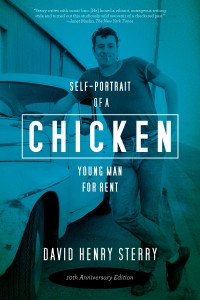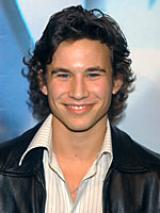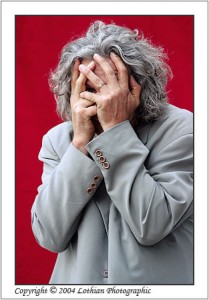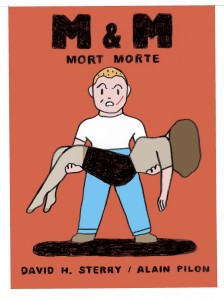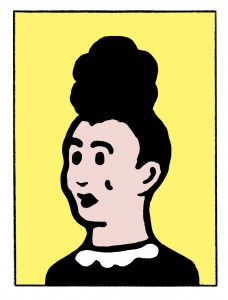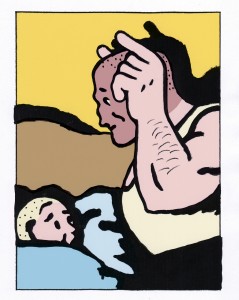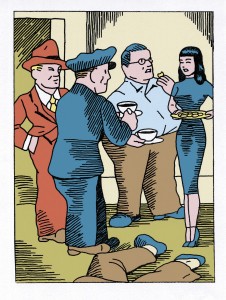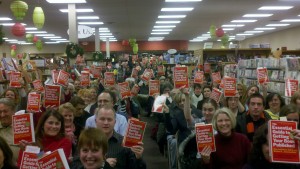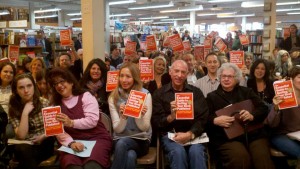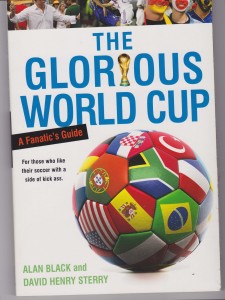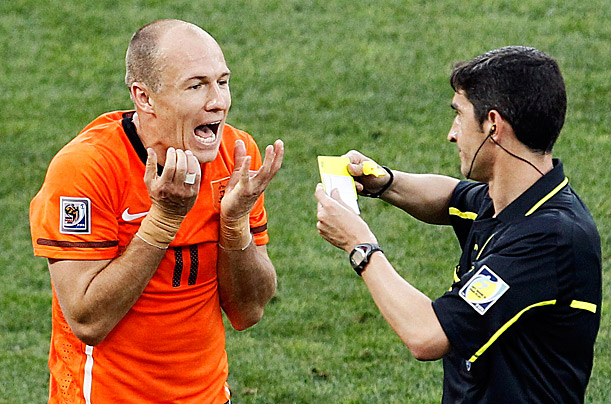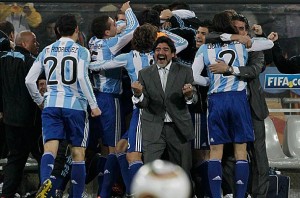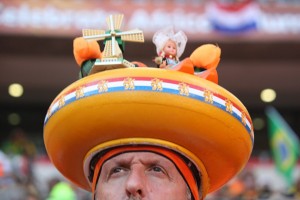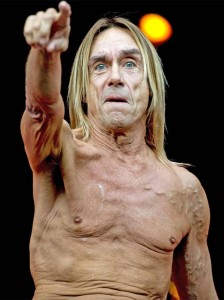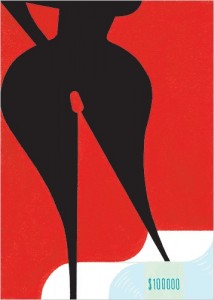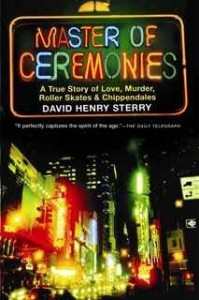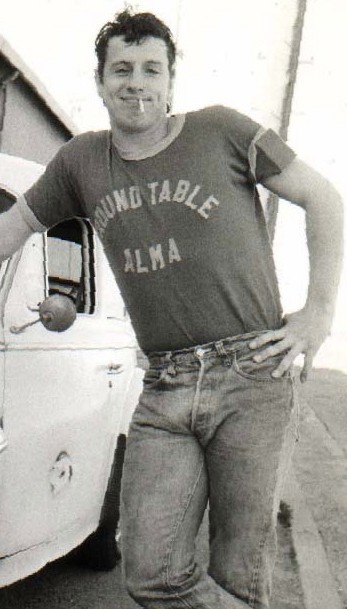Alan Black, San Francisco literary legend, and author of Kick the Balls, wrote The Glorious World Cup: A Fanatic’s Guide with David Henry Sterry and lived to tell the tale. Sterry is the author of the memoir Chicken, which is now out in a 10 year anniversary edition. Nancy Wiegman puts Alan and David through their paces as they break down telling and selling the story of your life. http://kchofm.podbean.com/2010/05/24/david-sterry-and-alan-black/

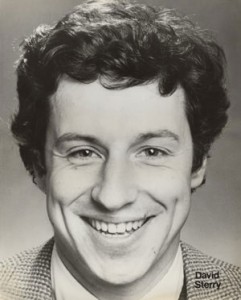
Category: Press Page 2 of 3

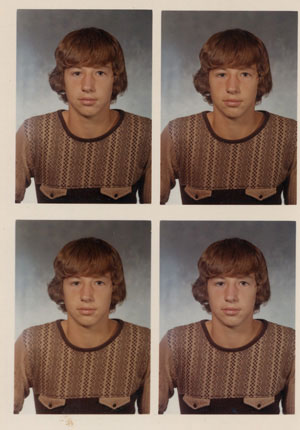
“I loved this book. It is a hilarious and fascinating look into the shadowy world of sex for hire, but also a deeply moving, empathetic, finely written portrait of a young man coming of age, struggling with both emotional and physical survival. Colorful, bizarre characters, and an authentic narrative voice had me hooked from page 1. It is not for the feint of heart as it is graphic sexually – but i did not feel gratuitously so. i found the descriptions interesting in an almost Kinsey report way – all the odd things people do privately that they have no idea others are doing is poignant. For any one who has had to battle addiction or courageously face their own demons this book is right on target. It also makes it so painfully clear how easy it is for young people to fall through the cracks – david is a lucky survivor of his tale and a truly articulate, comic but powerful writer.” – The Passionate Writer
To buy, click here.
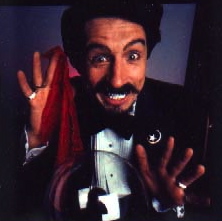
Interview from the Dan O’Brien Project
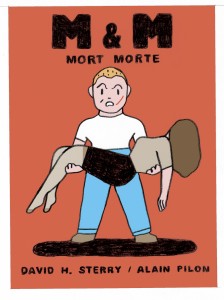 So begins MORT MORTE a macabre coming-of-age story full of butchered butchers, badly used Boy Scouts, blown-up Englishman, virginity-plucking cheerleaders, and many nice cups of tea.
So begins MORT MORTE a macabre coming-of-age story full of butchered butchers, badly used Boy Scouts, blown-up Englishman, virginity-plucking cheerleaders, and many nice cups of tea.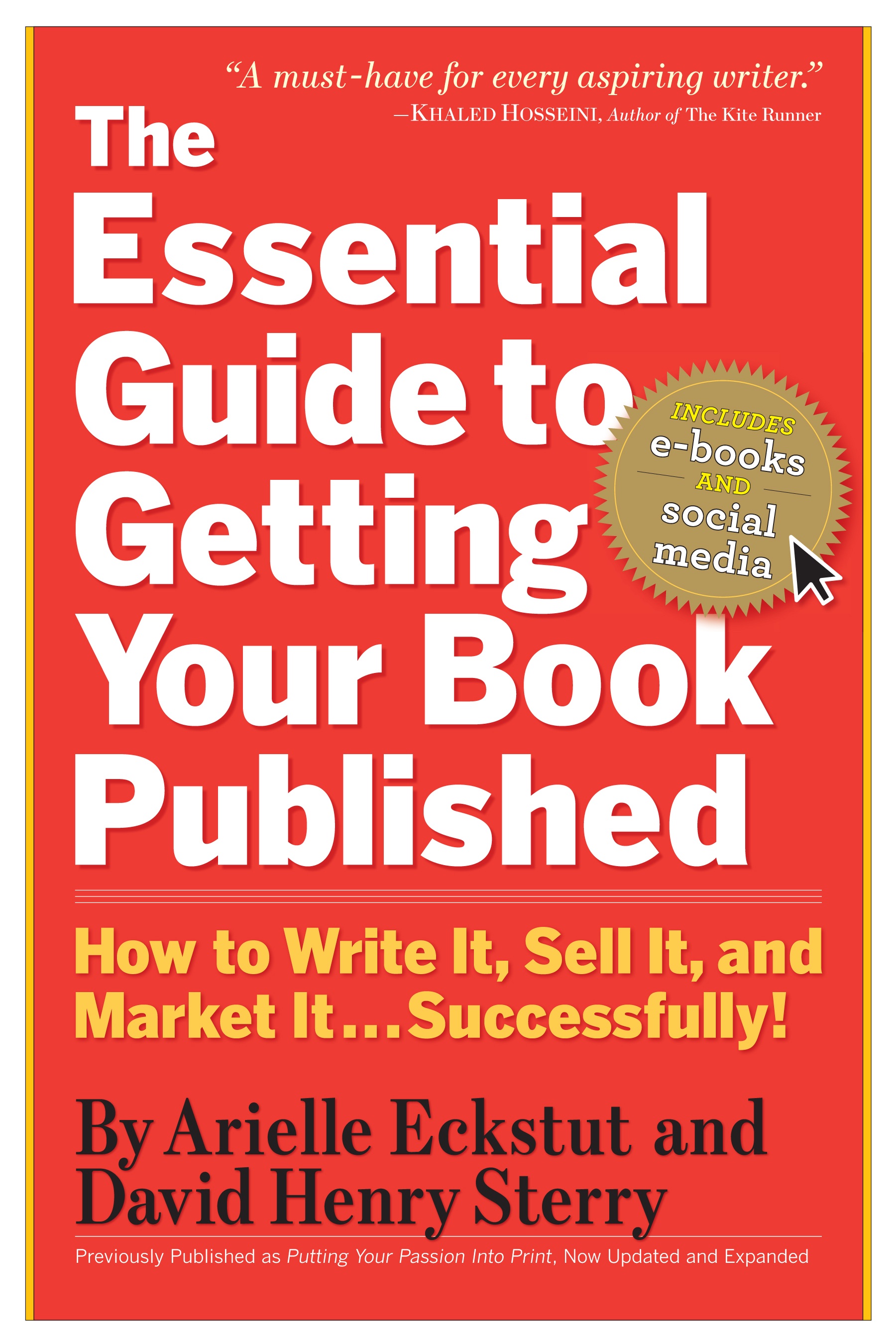
The Essential Guide to Getting Your Book Published – A Surrogate Agent

The Swedish publishing industry differs from the American in one fundamental way: except for handling foreign rights of already established authors, we don’t do agents. As an unpublished author, you send your unsolicited manuscript directly to the publishing companies, and in the rare an unlikely event of being accepted by one, you’re on your own. The Essential Guide to Getting Your Book Published helped me navigate in the strange and uncharted waters that are having your book published, acting all the way as a sort of surrogate agent.
Before submitting my manuscript, I read the chapters on The perfect package and Locating, luring and landing the right agent and worked hard on perfecting my pitch and writing the perfect personal query letter – eventually eliciting comments from my publisher on how refreshing it was to read such a professional personal query letter.
After having signed up with one of the major publishing companies in Sweden, The Essential Guide to Getting Your Book Published kept me informed through all the different stages of the process. It allowed me to relax, secure in the knowledge of what would happen next, and made it possible for both me and my publisher to focus on the important issues – namely, making sure my book was everything it could be. Above all, it helped me to be professional and friendly in my dealings with my publishing company: delivering on time, doing slightly more than what was expected of me, and acknowledging the hard and dedicated work several people did for my book. It resulted in an incredible support and personal commitment from my publisher, editor, publicity and marketing team, and sales representatives. If you’re only going to read one section – it’s Agent Relations.
Katarina Bivald is the author of The Readers in Broken Wheel recommends about a Swedish book nerd suddenly stranded in a small town in Iowa. It will be published in Sweden in September 2013. For more information, please contact Judith Toth on Bonnier Group Agency – [email protected]
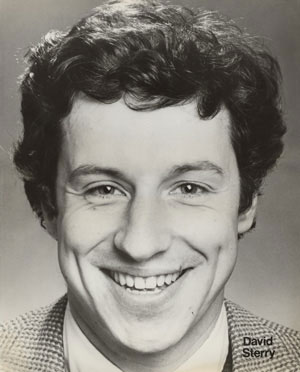
2. Where did the idea come from for your book?
Illustrated coming of age black comedy: Diary of a Wimpy Kid as told by Travis Bickle from Taxi Driver
It’s a story of a boy keeps killing his dads to protect his mom: it’s a story of a boy who really loves his mother.
Two weeks. But it took me 20 years to find a publisher.
Alice in Wonderland. The Tin Drum. Oedipus.
My hypnotherapist.
Vagabondage Press.
It’s got spectacular illustrations by award winning artist Alain Pilon. It’s very short.

sweet review of pitchapalooza from randa’s fans, by a total cynic skeptic.
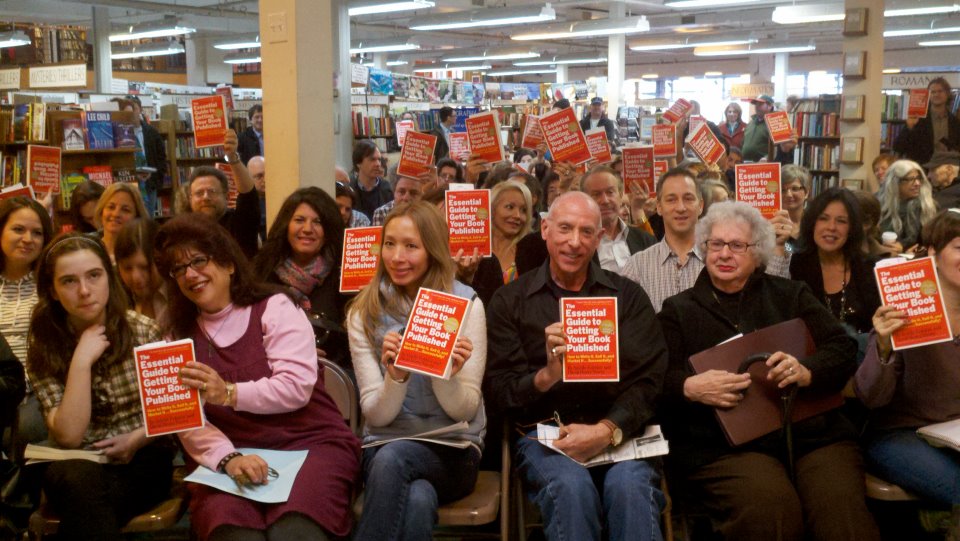
georgetown patch on pitchapalooza @ politics & prose http://georgetown.patch.com/blog_posts/country-mouse-review-of-pitchapalooza-part-1-introduction
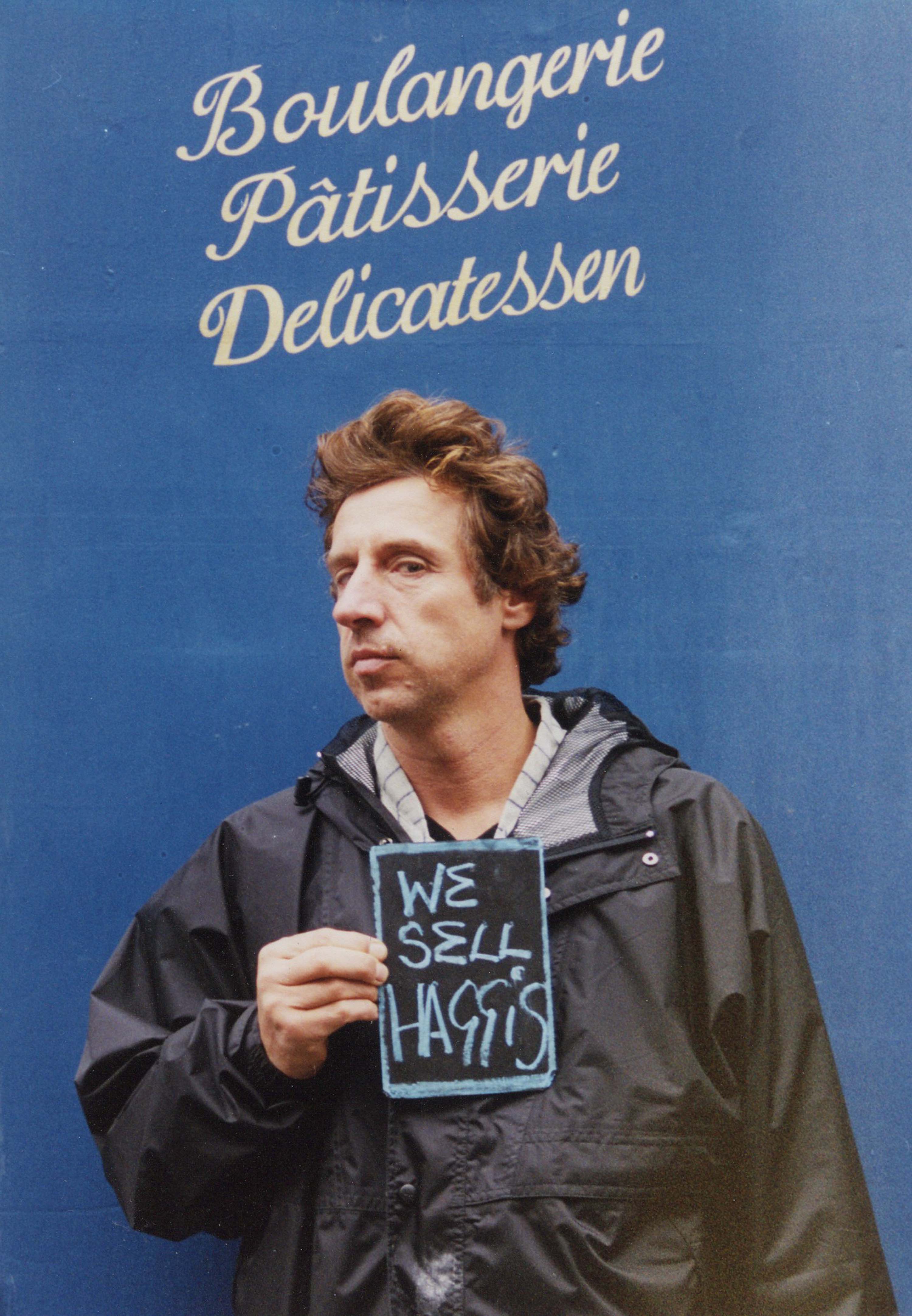
 Some small advice about how to get published & whatnot on Gotham Writer’s Wokrshop website! http://www.writingclasses.com/WritersResources/AuthorAdviceDetail.php/author_id/195073
Some small advice about how to get published & whatnot on Gotham Writer’s Wokrshop website! http://www.writingclasses.com/WritersResources/AuthorAdviceDetail.php/author_id/195073

Hello friends, this is me, David Henry Sterry, on National Public Radio’s Weekend Edition talking about David Beckham, MLS, & making soccer sexy in America
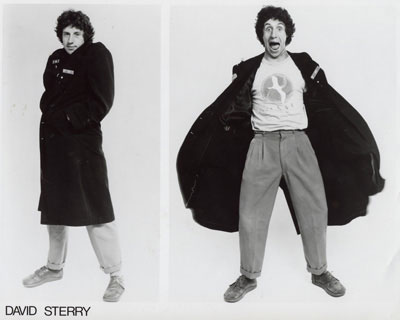
This was one of the most fun interviews I’ve ever done, thanks to Julie Green.

 Public radio san francisco presents pitchapalooza
Public radio san francisco presents pitchapalooza
http://www.thebookdoctors.com/the-book-doctors-pitchapalooza-on-kalw-san-francisco-public-radio
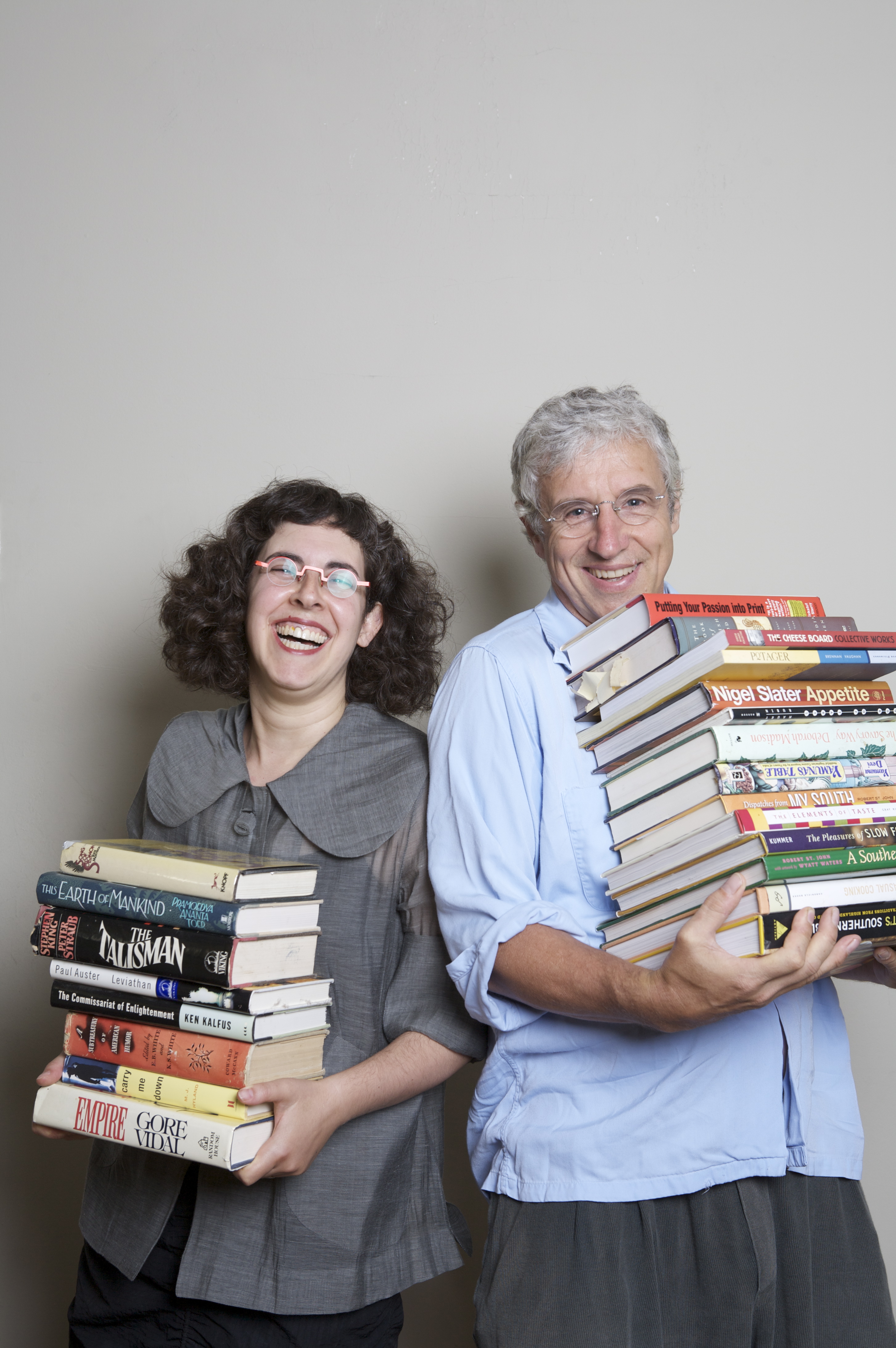
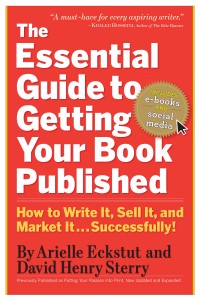 “Writers now have breathtaking new ways of connecting with and getting their work directly into the hands of readers. And they no longer have to rely on a small group of publishing experts in order to get published. Because there is no barrier to to publishing”, write publishing experts and Book Doctors, Arielle Eckstut and David Henry Sterry in their comprehensive and idea packed book The Essential Guide to Getting Your Book Published: How to Write It, Sell It, and Market It . . . Successfully. The authors set out a blueprint for creating an idea, developing a book on the topic, getting that book published, and delivering it to readers worldwide.
“Writers now have breathtaking new ways of connecting with and getting their work directly into the hands of readers. And they no longer have to rely on a small group of publishing experts in order to get published. Because there is no barrier to to publishing”, write publishing experts and Book Doctors, Arielle Eckstut and David Henry Sterry in their comprehensive and idea packed book The Essential Guide to Getting Your Book Published: How to Write It, Sell It, and Market It . . . Successfully. The authors set out a blueprint for creating an idea, developing a book on the topic, getting that book published, and delivering it to readers worldwide.
Arielle Eckstut and David Henry Sterry understand the challenges of writing a book and in getting the final manuscript published and marketed well. The authors point to the importance of passion as one of the most critical elements necessary for publishing success. Without the passion for the book’s idea, a would be author might not have the drive needed to carry the book through to completion and for the marketing effort. Along with the important aspect of being passionate about the book’s subject matter, Arielle Eckstut and David Henry Sterry share their four principles of successful publishing:
* Research
* Network
* Write
* Persevere
Arielle Eckstut and David Henry Sterry (both in photo left) recognize the dramatic and systemic changes that have altered the publishing landscape. As a result, their advice doesn’t cover just traditional book publishing. The authors also share techniques for self publishing a book, and for utilizing the alternate book formats including ebooks, audio books, and even for publishing online. Arielle Eckstut and David Henry Sterry offer step by step advice for every facet of the book publishing process, and also include the crucial but often overlooked areas of copyright, contacts, payment, and legal protection. Along with the valuable tips on taking care of business, the book also contains the always vital area of book marketing. While a book may be great, and convey the passion and knowledge of the author, without a marketing plan even the best book will fail to find an audience. Arielle Eckstut and David Henry Sterry provide marketing concepts that include both conventional and unconventional channels to promote and sell more copies of the finished product.
For me, the power of the book is how Arielle Eckstut and David Henry Sterry remove the mystery from book publishing, and present a complete handbook for achieving success as an author, from start to finish. The authors leave no stone unturned, and make it clear to the would be author that writing a bestselling book is possible, but requires much work on the part of the writer. Because of the effort involved in writing, contracting, and marketing a book, the authors emphasize that the author must be passionate about the subject or plot of the book. Anything less, and the book is likely to not do as well in any facet of the process.
Arielle Eckstut and David Henry Sterry present two very important and useful sections on the business of book publishing and on marketing the book through traditional and guerrilla methods. These two critical topics are not always included in books on publishing, making this book even more essential for the serious author. An added bonus feature provided by the authors are the many author resources in the appendix. Overall, the book is a treasure trove of information that will benefit any aspiring or experienced author.
I highly recommend the essential and very practical book The Essential Guide to Getting Your Book Published: How to Write It, Sell It, and Market It . . . Successfully by Arielle Eckstut and David Henry Sterry, to anyone seeking a one stop advice book for becoming a successful author. The wealth of information contained in this wonderful book makes it a must for any novice or long time author.
Read the valuable and information filled book The Essential Guide to Getting Your Book Published: How to Write It, Sell It, and Market It . . . Successfully by Arielle Eckstut and David Henry Sterry, and discover the insider secrets to becoming the successful published author of your dreams. From idea to sale, this is the book to unleash the bestselling author within you
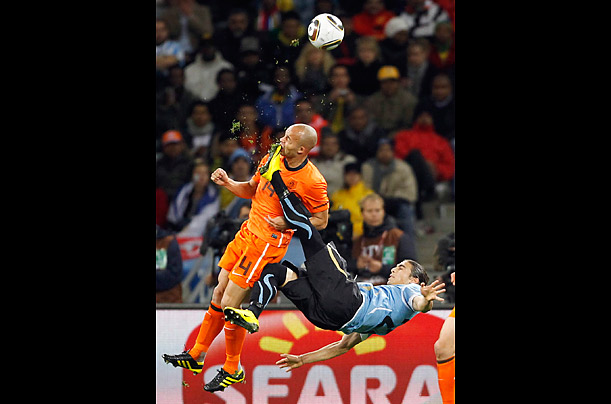
The glorious Liane Hansen talks to David Henry Sterry & Alan Black about vuvuzela, #1 Hottie Diego Forlan, and the future of the world
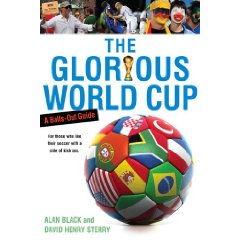
I love this website, and the guy who runs it is way cool, David Gutowski. i had a blast putting this 2gether.
http://www.largeheartedboy.com/blog/archive/2010/05/book_notes_davi_13.html
Book Notes – David Henry Sterry (“The Glorious World Cup: A Fanatic’s Guide”)
In the Book Notes series, authors create and discuss a music playlist that relates in some way to their recently published book.
As I grow older, my love for soccer increases every year while the appeal of other sports wanes (both as spectator and participant). The World Cup is my favorite sporting event, combining the international aspect of the Olympics with the fervent passion of soccer fans.
David Henry Sterry has co-written The Glorious World Cup: A Fanatic’s Guide, a wildly entertaining book on the event, its players, and its history. Whether describing historical rivalries, infamous events, or the great players of the game, Sterry and his co-author Alan Black deliver a thoughtful yet always entertaining commentary.
As a bonus, the guest essays (by Irvine Welsh, Po Bronson, and others) are among the best soccer writing I have read.
If, like me, you are looking forward to the World Cup, I cannot recommend this book strongly enough.
In his own words, here is David Henry Sterry’s Book Notes music playlist for his book, The Glorious World Cup: A Fanatic’s Guide:
I am genetically predisposed to kick balls with my feet and butt them with my head. My grandfather on my mother’s side was a professional soccer player in England, back when a professional soccer player had to have a day job to feed his family. At the age of 16 my father, who grew up in a tiny mining village outside Newcastle, had a choice: become an apprentice professional soccer player, or go to college. He had a coal mining dad later died a miserable death when black lung disease planted its flag into his respiratory system. So my father chose college, the first in his family to attend school past the age of 16. He immigrated to the United States just before I was born. When my parents became citizens, five years to the day after they arrived at Ellis Island, we had a huge party, sparklers twinkling atop a red white and blue sugar lard icing cake. When I was little, soccer was something played by dark swarthy men with too much body hair who spoke strange grunting languages. And it was certainly never seen on TV. But as I reached high school, the greatest players of their generation were brought to America to ply their trade as the bright light of their careers faded. Pelé, Franz Beckenbauer, Johan Cruyff. That’s when I really first fell in love with the game. I was lucky because the North American Soccer League sent there players out to coach high school kids. So I was trained by the center half of the Dallas Tornadoes, a man named John Best. He and my father taught me what it was to be a soccer player. The speed and the skill but most especially the cool under fire take no prisoners passion that characterizes the best soccer players.
After college I went and trained back in the mother country. Yes, I was taking coals to Newcastle. I played in the top amateur league in the northeast of England, and we were paid the equivalent of $50 a game, $100 bonus if you scored a goal. One of my teammates had been noticed by Newcastle United. At that point in history, being an American playing in England, I was such an anomaly that they wrote article about me in the local paper. So when my pal brought me along to the training ground of Newcastle United, one of the great teams in Europe (present circumstances notwithstanding) I was allowed to train with the under-21 squad. It’s kind of like a peasant from Outer Bumfuck Slovakia getting to practice with the New York Yankees.
There I learned the craft of being a Hardman. How to lurk in the shadows and deliver punishment without looking like you’re doing it. How to get inside the prima dona diva goalscorer’s head. To drive him crazy and take him out of his game and make him look over his shoulder every time the ball’s coming towards him, wondering if you’re going to chop the knees right out from under him, or plant the sharp bone of your elbow into his rib cage. Happy days.
It was there I also learned about the religious ecstatic tribal grandeur of soccer. It is truly a game of the people. Completely democratic, in part because you don’t have to be a genetic freak. So anyone can become great if they pay their dues to the Goddess of Soccer. And all you need to play is a ball. In fact if you don’t have a ball he can tape up a few old socks. Or, like Pelé did when he was a child, you can play with a grapefruit if you have to. I used to go to Newcastle United games and chills would electrify my spine while the roars would rattle my bones. And they’d break into these old ancient chants and songs spontaneously. No scoreboard telling a bunch of sheep when to cheer. It was organic, hewn out of the very earth from which my hearty, sentimental, sarcastic, hard yet generous working class people sprang. Anyone who ever tells you that soccer is boring has never been to a packed stadium full of Geordies in full throated roar as their beloved warriors try to bring home the glory.
When I got back to the good ol’ US of A, I was shocked to see fields of blonde haired blue-eyed children playing soccer. There was even a new idiomatic phrase that had slipped into the vernacular of America: Soccer Mom. I was offered a professional contract by the Vancouver Whitecaps, whose general manager was none other than John Best, the man who trained me so well. The day after I got the letter inviting me to Vancouver, I tore my left knee to shreds training. Shattered kneecap. Shattered dreams. I was in a cast for six months. In truth, I’ve never really recovered fully, physically, spiritually or emotionally.
Some Americans still don’t understand that the World Cup is like the Super Bowl, the World Series, the NCAA basketball championship, the NBA finals and Stanley Cup all rolled into one. If every nation in the world were invited to play. It is a pilgrimage, an odyssey, a journey to the center of what makes it a joy to be alive.
And this year, the mother of all sporting events will be landing for the first time on the mother of all contents: Africa. Yes, I love watching the greatest players in the world beating each other to a bloody pulp for a month. Yes, I believe in my heart that this is the year the United States could actually make it to the final (remember, they should’ve beaten Brazil in the finals of the Confederations Cup in South Africa last summer). But I think what I enjoy most about the World Cup is that it brings together and makes the strangest bedfellows out of humans from literally every corner of this great and crazy planet. I love that.
When Bay Area legend Alan Black, the transplanted Scotsman who made the Edinburgh Castle an epicenter of literary excellence in San Francisco, asked if I wanted to put together a guide for the upcoming World Cup, without even thinking I said yes. We really wanted to capture the grandeur, passion, madness, ecstasy, agony, misery and glory that is the World Cup.
Music has always been a big part of soccer. One of the pleasures of this brave new world in is it there are approximately 800 squazillion soccer videos floating around the World Wide Web, where people take music and put it over soccer greatest-hits highlights. So here’s some of the stuff I was listening to, and watching, as we put together this guide to World Cup South Africa 2010.
“Ole Ole Ole”
The classic crowd chant. There are so many different versions of this song it kind of boggles the mind. But unless you’ve ever been in a stadium with 100,000 people chanting it while blowing whistles and beating drums, and as will be the case in South Africa, playing the vuvuzela, the local insane fan trumpet, you have not truly lived.
“We Are the Champions”
God bless Freddy Mercury. The world was truly a sadder, less exciting, more fucked up place when he left us. There’s something about his over-the-top yet totally sincere bravado to that matches the Olympian scale of the World Cup, when literally the whole planet sits on the edge of its seat holding its breath to see what happens next. And this song, of course, has been sung all over the world by rabid fanatics celebrating their team’s triumph.
Another video
“Lust for Life”
Nothing quite says lust for life like the World Cup. And I just love those drums and that yowling howling Iggy Pop. Here’s a very cool video with that song in it and how it figured in the movie Trainspotting, which was written by Irvine Welsh, who just happens to be a contributor to our book. It’s the story of the most famous goal in the history of Scotland and how it relates to pornography and tartan folklore. By the way, the goal that Scotsman Archie Gemmill scores became the basis for a modern dance piece.
“Pata Pata”
By the terribly missed Miriam Makeba. So sad she’s not gonna be able to sing for the globe when it comes calling for the World Cup. A beautiful artist who really captures the rhythms and the spirit of Africa.
“The Lion Sleeps Tonight”
I know it’s the most overplayed song in the world, but I still love it and I wanted to put some images of Africa in here.
When I was performing at the Edinburgh Fringe Festival, I was on a radio show with an American comedian named Greg Proops. He’s a very funny fellow. I knew him from my stand in San Francisco in the 80s. The musical guest that day was the Soweto Gospel choir and they completely tore for the roof off the joint. Just blew the whole place up. I make a point of trying to see them whenever I possibly can.
And here, the best England World Cup song ever.
I don’t necessarily like the music in the links below, but the soccer action is amazing.
http://www.youtube.com/watch?v=QbQVdLRqJ1w
http://www.youtube.com/watch?v=SveYH_Dxudc
http://www.youtube.com/watch?v=p21ZC9pBZDs
http://www.youtube.com/watch?v=B9L9rj4swhs
http://www.youtube.com/watch?v=jBHICeJ1ZmY
http://www.youtube.com/watch?v=d3ys_2UUEpk
Thanks again, Largehearted Boy, and enjoy the Greatest Show on Earth, as the Glorious World Cup crash lands in South Africa this summer.
David Henry Sterry and The Glorious World Cup: A Fanatic’s Guide links:
the author’s website
the book’s website
Facebook page for the book
Bollocks review
Soccer Insider review
Largehearted Boy Book Notes music playlist by the author for Hos, Hookers, Call Girls & Rent Boys
Sports Cackle Pop interview with the author

I was just going through my back pages on my website, I found this very cool link to an interview. I’m not sure if I posted this here yet, but this is by Violet Blue. I shared a bed with her and San Francisco during Lit Quake. As part of a night of erotica at which I was the master of ceremonies. She was extremely saucy and extravagantly smart. Then I was recently in Richmond Virginia doing a gig with the James Valley Writing Group, Slash, and Valley Haggard, I was in my hotel room I turned on the TV, and BOOM! There was Violet Blue on Oprah, being all smart and sexy.
The industrial sex technician: An interview with David Henry Sterry
In my recent SF Chronicle column I had the exciting opportunity to interview David Henry Sterry — after being wowed by sharing a stage with him at Supperclub. His answers had me and my editor at the Chron doing a double take; here Sterry confronts sex work from every angle. I’d love to someday see video interviews with many of his subjects, running the gamut. Instead of the usual tropes, we’d see some really interesting stories, I think. Here’s a snip from The Ultimate Dirty Job – Violet Blue: David Henry Sterry’s new book reality checks sex work in America:
The Discovery TV series “Dirty Jobs” with Mike Rowe covers all manner of occupations full of filthy, fascinating hazards. While a stint in a sexier spectrum of employment would hold just as much peril, (and equal fascination), I doubt we’ll ever see Rowe learning to sling a whip for a night at The Gates. Because it’s “a dirty job, but someone’s gotta (and going to) do it” — sex work in all its permutations is a prime subject for hands-on storytelling.
The problem is, it’s only ever told from one side of the coin or the other: rose-colored glasses, or the victim’s tale. Yet since the nonfiction essay collection “Hos, Hookers, Call Girls and Rent Boys” edited by David Henry Sterry hit the bookshelves, the NYT’s rave review list, and landed in my hot little reader’s hands, that’s all changed. Sterry is up for showing every angle of the world’s oldest profession. It’s absolutely riveting — and poised to change the cultural conversation about work for sex in an honest, unflinching cocktail of real-life stories that go down like a mix of sweetened poison and intellectual jet fuel.
After reading with Sterry for Litquake‘s now-infamous Supperclub SF Readings In Bed, I cornered him for the real dirt on “Hos, Hookers, Call Girls and Rent Boys.”
Violet Blue: What drove you to pick the range of sex work covered in “Hos”?
David Henry Sterry: Right now in these great United States, in every major metropolis, there are people at the very bottom of the food chain, who are basically sex slaves, being exploited in the worst ways imaginable by the most vile evil predators. And there are women, men and transsexuals who are over the age of 18, in full command of all their faculties, and are choosing to use their body and their brain to make money in the sex business. And the crazy thing is, these two sides have a hard time acknowledging the truth of the other. So I tried in my own small way, to document all voices.
I had no political axe to grind: if you worked in the sex business, and you had a story to tell, and you had the skill to tell it, you were welcome in our book. As a result, I have writing by 15-year-old girls who were raped, beaten, burned, starved, degraded and exploited by the worst scum of the earth. And I have women who used sex work to pay for their master of fine arts degree at Berkeley. And everything in between: Working class, meat-and-potatoes sex workers; fabulous rent boys; phone-sex operators; former Olympic athletes; undereducated and overeducated.
VB: You are a former sex worker — what kind of work did you do?
DHS: I was an industrial sex technician, which is my preferred term for the work, for nine months — one human gestation period — when I was 17 years old, living in Hollywood, and studying existentialism at Immaculate Heart College in Hollywood, California. I worked mostly with women, although I did, toward the end of my career, get paid to verbally and physically humiliate men. One of them was a judge. He came out of the bathroom in his judge’s robe. Underneath he was wearing a diaper. Even at 17, this made me seriously question the American judicial system.
This anthology, as it is, could only have happened because I used to be in “The Life”. One of the chief advantages to being an ex-ho myself is that I’m tapped into many of the networks that we have. All the best hos I know are excellent networkers. Netsexworkers. Plus, I was invited to teach a writing workshop with people in San Francisco who had been arrested for prostitution. Many of them were, or had been, drug addicts. I did this for two years, once a week. So I became friends with this population, from the poorest parts of America, as well.
Then I got invited by the United States Dept. of Justice to come to Washington for a Survivors Conference, leading this writing workshop with all these young women who had been savaged in the sex business. These are voices it would be virtually impossible to get if you were not in fact someone who had been in the business. But I was determined to show America the human face of all the people in the sex business, to get people to understand that we are sisters and brothers, aunts and uncles, cousins, grandmothers, dads and moms. I would never have gotten the opportunity to do this, if I hadn’t come out myself as a sex worker.
When I got into that room, to run that writing workshop in Washington, with all those diamond-hard girls, they laughed at me, made fun of me. But then when I told them my story, all of a sudden they wanted to tell their stories. Over and over I’ve seen the healing properties of telling your story while putting this book together. And if I hadn’t first done this myself, struggled for years to try to tell my story, then finally to come out of the sex-worker closet, I wouldn’t have been able to help other people do it.
VB: What’s the most unforgettable story in the book?
DHS: Well, my own of course, because it happened to me. You don’t easily forget executing some extremely challenging cunnilingus on an 82-year-old woman. But as I look beyond the narcissistic shackles of myself, it’s hard for me to single one out, because the stories have become like my children. I don’t want to disrespect any of them. I love them all, even the worst of them.
In “My Daughter is a Prostitute” this woman keeps trying to explain to her Russian mother that she’s a dominatrix, that she doesn’t actually have sex with men. But her mother just will not understand, keeps saying over and over again, “My daughter is a prostitute.” “It’s a Shame About Ray” by Bay Area luminary Kirk Read, is a funny, poignant beautiful piece of writing. I could go on, but I won’t.
VB: What will people be most shocked by in these stories?
DHS: I think “Raped 97 Times” is horrifying. There’s also a very, very disturbing story by a great, great Bay Area writer, Mattilda Bernstein Sycamore. And there’s a story in the back of the book by a woman who is trying to kick heroin. Her mom comes and visits her, and shoots up in front of her, tells her, “Too bad you can’t try any cuz yer pregnant.” That piece is called “Thanks A Lot.” And of course the most disturbing is a piece by a woman who has become my friend, Jessica Bertucci, it’s called “Helping Daddy Pay the Rent.” Enough said.
VB: The need for sex and the need for money is blurred throughout many of the very real stories in this collection. Why did you make that choice as an editor?
DHS: In the exchange of sex for money, a window in the soul opens. I want people to take a peek. I’m fascinated by what happens when love, power, money, sex, obsession, and God knows what else all collide, usually in a small room. I think people make the mistake, when they’re writing about this subject, and in fact generally speaking when the write about sex, of focusing on the sex organs. I’m much more interested in how these encounters affect people mentally, spiritually, emotionally, how it changes them as human beings. And of course as everyone knows, the most important sexual organ is located not between the legs, but between the ears.
VB: As an aside, I’m curious: how do you think this all relates to the client fairytale-fantasy of having their sex worker fall in love with them and “leave the life for true love”?
DHS: “Sir Save-A-Ho,” is one variation on that theme. It’s a story in the book by a very gifted writer and filmmaker, Juliana Piccillo, about this very subject. In it, a vice cop kind of tries to save her when she’s a 17-year-old massage parlor girl. But yes, those Julia Roberts/Richard Gere/Pretty Woman fairy tales are so powerful. If anything, I’m afraid this book might make clients realize how profoundly these industrial sex technicians just want to get P-A-I-D. As my employment counselor/pimp used to say to me, the three most important rules of the world of sex for money are: 1) Get the money up front; 2) Get The Money Up Front!; and 3) GET THE MONEY UP FRONT!!!
“Hos, Hookers, Call Girls, and Rent Boys: Professionals Writing on Life, Love, Money, and Sex” by David Henry Sterry (with R. J. Martin Jr.) is available thanks to cutting edge publisher Soft Skull Press.
Big thanks to Sterry for taking time out to answer my nerrrrrdy questions on an irrational schedule.
Violet Blue
The London Times named Violet Blue “One of the 40 bloggers who really count” and Self Magazine named TinyNibbles one of the “Best Sex Resources for Women.” Blue is an author and journalist on sex and technology, hacking and security, porn for women, privacy and bleeding-edge tech culture. She is a columnist for Engadget; she’s an educator, speaker, crisis counselor, volunteer NGO trainer, and the author and editor of over 40 award-winning books. Blue is also an advisor for Without My Consent, as well as a member of the Internet Press

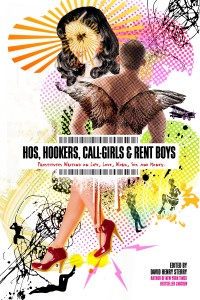 New York Times review has hit the streets for Hos, Hookers, Call Girls & Rent Boys: Professionals Writing on Life, Love, Money & Sex, I am ecstatic about this truly min boggling turn of events and want to thank the amazing contributors and everyone who helped w/ special shout out to my boy RJ Martin who partnered w/ me on this labor of life which has given birth to such a flourishing child.
New York Times review has hit the streets for Hos, Hookers, Call Girls & Rent Boys: Professionals Writing on Life, Love, Money & Sex, I am ecstatic about this truly min boggling turn of events and want to thank the amazing contributors and everyone who helped w/ special shout out to my boy RJ Martin who partnered w/ me on this labor of life which has given birth to such a flourishing child.
http://www.nytimes.com/2009/08/23/books/review/Bentley-t.html?em
“An eye-opening, astonishing, honest and funny collection from those who really have lived on the edge in a parallel universe… Unpretentious and riveting, their tales are also graphic, politically incorrect and mostly unquotable in this newspaper.” Toni Brantley, NY Times
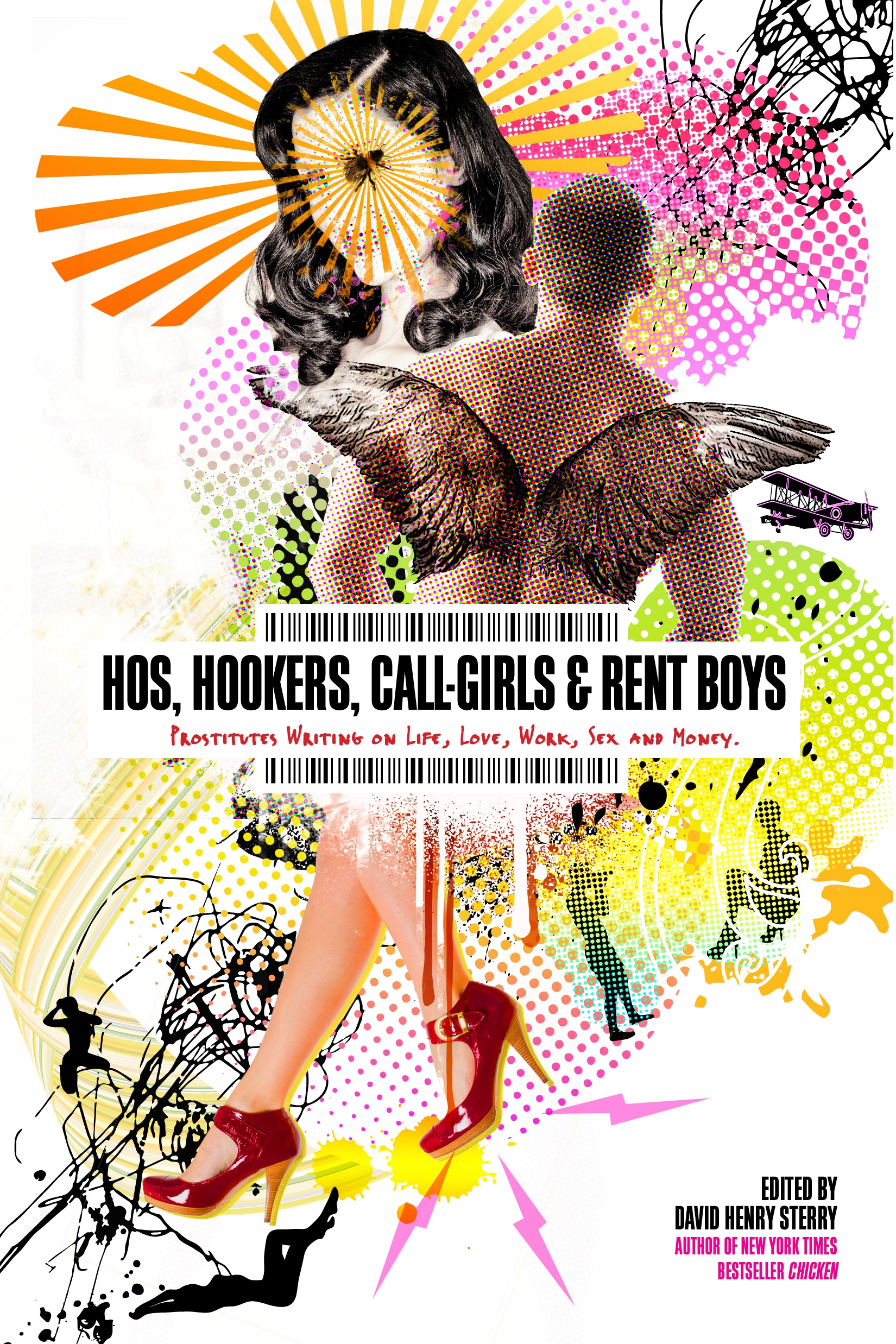
HO’S, HOOKERS, CALL GIRLS & RENT BOYS:
PROFESSIONALS WRITING ON LIFE, LOVE, MONEY & SEX
AVAILABLE ONLINE & AT YOUR LOCAL BOOKSTORE
The miracle is manifest. The anthology has hit the streets. Half a decade in the making, this love’s labor, the product of so much blood, sweat, tears and other assorted body fluids, has finally traveled down the birth canal, and has been delivered by an able-bodied team of midwives, editors, dulas, copy editors, birth coaches, art directors and sweaty worried nerve-wracked family and relatives. Below please find information about the website and events. Many thanks to all involved. We are very proud of this book.
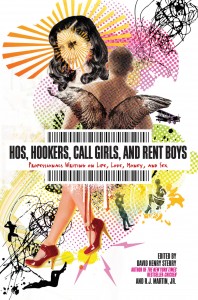 Smash Review on cover of Sunday New York Time Book Review.
Smash Review on cover of Sunday New York Time Book Review.
“An eye-opening, astonishing, honest and funny collection from those who really have lived on the edge in a parallel universe… Unpretentious and riveting, their tales are also graphic, politically incorrect and mostly unquotable in this newspaper.” Toni Brantley, NY Times
REVIEW FROM PUBLISHERS WEEKLY
“The sprawling project, grouped loosely by topic (Life, Love, Money, Sex, etc.), offers insight into seemingly all aspects of the sex trade: high-profile celebrities like Xaviera “Happy Hooker” Hollander and Nina Hartley make notable contributors, but it’s the unknown writers who will stick. The selections from the book’s closing section alone, written by members of Sterry’s San Francisco writer’s workshop for sex workers, range from triumphant to harrowing… Aside from exposing the complex web of relationships among phone sex operators, dancers, massage parlor workers, prostitutes and their customers, the book is heavy with raw emotions ranging from celebratory to shameful, giving sociologists plenty to ponder. It’s not all dark and heavy: Sterry’s own account of his experience as a birthday present for an 82-year-old grandmother is touching and sentimental; veteran performer Annie Sprinkle is characteristically blunt, funny and honest… This volume houses some real gems.”
Hos, Hookers, Callgirls, and Rentboys is a collection of short memoirs, whore war stories, confessions, nightmares, journalism and poetry. It contains new writing from sex worker literati: art-porn priestess Dr. Annie Sprinkle; the infamous Happy Hooker, Xaviera Hollander; author and LGBT activist Mattilda Bernstein Sycamore; star of The Devil in Miss Jones, Georgina Spelvin; best-selling memoirist David Henry Sterry and sex educator/movie star Nina Hartley. But it also includes crack hos, male hustlers, pimps and the teenagers they exploit. Funny, terrifying, tragic and inspiring, this collection of oral history, short memoirs, war stories, confessions, nightmares, social criticism and poetry is unprecedented because it includes people from all walks of the sex for money world.
From back-alley Tenderloin massage parlors, to glittering Beverly Hills hotels, to Times Square porn palaces, to the meanest streets in Harlem, Hos, Hookers, Call Girls, and Rent Boys is a collage of sex and money, shining light on this hidden underbelly of America, from sea to shining sea.
NY Press – 8/11/09
“The prose in this volume is fresh and the tales are both heart-rending and hilarious, sometimes simultaneously… What’s most striking about the volume is how relevant these intimate and detailed chronicles are for any reader, whether they’ve sold their bodies or just their souls. It’s not just about sex.”
Tiger Beatdown 8/26/09
“Hos, Hookers, Call Girls and Rent Boys is an extremely valuable and necessary book, not because it tells you what your perspective ought to be, but because it provides more perspectives than pretty much any other book on the topic… hilarious… Sexy and sunny pieces (the sunniest, actually, often come from Sterry himself) coexist with downright harrowing narratives; sex workers who choose the work freely and love doing it are represented, as are sex workers who were forced to do the work and suffered immensely. The book is free of any agenda but a commitment to giving voice to sex workers.”
The Rumpus 8/26/09
“In addition to being porn stars and prostitutes, many of these people are talented writers with strong voices and precise observations. They’re natural born storytellers who manage to encapsulate an aspect of their experiences in wonderfully succinct (Sebastian Horsley: “Brothels make possible encounters of extreme intimacy without the intervention of personality.”) and stark, unsentimental ways (Brenda: “I have been arrested eight times for prostitution. It messed up my life.”)
Daily Beast – 9/12/09
“The book never feels like a naïve glamorization of the industry. ‘Ultimately, the stories in Hos, Hookers, Call Girls, and Rent Boys are all about money, says Sterry. ‘In our culture, happiness means money, a big house, and an expensive car. So when I, as a 17 year old, could make $100 by pleasing an 82-year old woman, that to me was a great American success.’
Style – 9/15/09
“Taboo, clever, wrenching and compulsively readable, you’ll be stripped of your stereotypes between the covers of this book.”
Antalffy Tibor honlapja 9/27/09
“Rögtön a hívás után a fejemben megjelent egy szörnyű kép: egy ráncos, löttyedt, aszott nagymama átlátszó hálóingben közvetlenül előttem áll, és az én szegény, picurka péniszem egy élettelen, használhatatlan, húsdarab ott lógott a lábaim között, és a pénzt vissza kellett adnom, miközben szégyenemben el akartam bújni a szőnyeg alá, mert a nemi szervem brutális cserbenhagyása megszégyenítő volt. És ez a kép egészen addig nem múlt el, amíg az előkelő Swank Swish szálloda megadott ajtaján be nem kopogtam.”
Revista Fuscia
“Hace poco me encontré un libro realmente sorprendente, que trata de historias de profesionales del sexo. Se llama Hos, Hookers, Call Girls, and Rent Boys, en español sería Putas, prostitutas y muchachos para arrendar. Se podría argumentar que para qué pierde uno el tiempo leyendo libros basura, pero la verdad es que desde el punto de vista de las relaciones humanas, es un texto muy interesante, a veces brutalmente honesto, pero también con sentido de humor.”
Acik Radyo
“Kitabın adı Hos, Hookers, Call Girls, And Rent Boys, Professionals Writing on Life, Love, Money, and Sex. Yani Kevaşeler, Orospular, Telekızlar ve Kiralık Oğlanlar, Profesyoneller Hayat, Aşk, Para ve Seks Üzerine Yazıyor. Yepyeni bir kitap bu, temmuz ayında Amerika’da Soft Skull Press tarafından yayımlanmış. Kitabın elimize geçiş hikâyesi ayrı ilginç. Mahallenin Fahriye Ablası’nın bir kıyağı bize diyelim teferruata girmeden ve hemen kitaba dönelim.”
Bust 10/06/09
“The first hand accounts, interviews, and poems featured in this book are so well written and organized, that the fact that they all center around the exchanging of sex for money falls into the background, and what’s left is an intimate offering of on-the-job gossip and late night horror stories that have you wanting to spend more time with the writer than the three or four pages a pop you’re given with each one.”
SF Weekly – 7/25/09 “This kaleidoscopic portrait of sex work in America is all the more striking for its breadth.”
Book Marks 11/30/09
“Sassy, sexy and certainly informed essays by sex workers. the oral histories by hos and hookers that conclude this collection – funny and tragic, matter-of fact and terrifying – give the book its authentic heft.”
NoPornNorthampton 11/17/09
“This fascinating anthology of personal essays by current and former sex workers gives readers a glimpse into the complex emotions of those who make a living selling intimacy… Fascinating, moving and darkly funny… humor, tenderness, pain, and aggression… unexpectedly sweet… it’s a great read.”
The Skinny 11/23/09
“From the big screen to the street, phone sex to stripping, and incalls to escorting… they’ve experienced sex work as an empowered choice, as a living hell, as a drug-fuelled necessity. They cover migration, burnout, criminalisation, violence, keeping secrets, coming out to family, and interactions with clients and colleagues. It delves deep and illustrate the complexities of the writers’ experiences. Alternately eye-opening, funny, moving, and devastating, this book should be required reading for those who still think any kind of sex worker is ‘representative’.”
Womanist Musings 11/24/09
“The book unflinchingly represents the voices of survivors of pimping, rape, abuse, thrust upon those who are forced into the sex industry. Editor David Henry Sterry has successfully etched out a safe space for these survivors’ sharp, sensitive prose… In a reading that brought down the house at Busboys and Poets, Sterry’s rendition of “I Was a Birthday Present for an Eighty-Two-Year-Old Grandmother” was both incredibly funny and a fascinating anti-ageist commentary on the things we’re all afraid to ask for. I sat in the audience, enraptured by Sterry’s uncanny vocal impressions and gesticulating… Hos, Hookers, Call Girls, and Rent Boys is a must-read for anyone who wants to experience first-hand the voices of contemporary sex workers.”
Meet, Pay, Love
By TONI BENTLEY
Published: August 20, 2009
Money and sex. Sex and money. Sounds dirty already. Is it the money that makes the sex dirty? Or the sex that makes the money dirty? Or, rather, the puritan strain that says they’re both dirty? How sexy! I mean, how inappropriate! And yet here we are again and again . . . and again. It’s former Gov. Eliot Spitzer of New York spending $80,000 on escorts, the parents (the parents!) of Senator John Ensign of Nevada distributing $96,000 to their son’s mistress and her family, Gov. Mark Sanford of South Carolina using taxpayer dollars to visit his South American “soul mate” and the $4 million rock on Kobe Bryant’s wife’s finger after his adulterous mishap. Money to get the sex, and money to make it go away.
If you are thinking this dynamic pairing is only for public figures, just contemplate your own divorce, past, present or future. And yet, still, it is taboo to regard sex and money as inextricably interwoven, to openly speak of them together. Why is sex supposed to be free? It never is. Ask anyone. Like Sebastian Horsley, England’s low-rent Oscar Wilde. “The difference between sex for money and sex for free,” he writes, “is that sex for money always costs a lot less.” Money is the elephant in every bedroom, making your parents’ constant presence look positively bourgeois.
But the connection is seeping into the mainstream. Witness Steven Soderbergh’s recent film, “The Girlfriend Experience,” which is about an expensive call girl and stars the real-life porn star Sasha Grey, and the new HBO series “Hung,” about a nice middle-aged dad who becomes a gigolo. The show, however, plays it safe, making him a financially strapped, reluctant gigolo and not, God forbid, a lusty one. Here, ironically, sex for money is more decent than sex for pleasure.
But if you want to know the real price of pleasure, ask the strippers, streetwalkers, Craigslist prostitutes, phone-sex operators, madams, pimps, drug addicts, porn stars and “performance artists” who offer themselves up in “Hos, Hookers, Call Girls, and Rent Boys,” a collection of essays, vignettes, rants and poems, edited by David Henry Sterry (who wrote the very good 2002 memoir “Chicken,” about his life as a young hustler) and R. J. Martin Jr., the director of development for the SAGE Project (Standing Against Global Exploitation) in San Francisco, which offers support of all kinds for sex workers. While good girls require dinner, trips, “commitment” or even an engagement ring for sex, here is a book by those who simply get the cash upfront.
From the unappealing title, you might think this is a truly trashy paperback. Far from it: it’s an eye-opening, occasionally astonishing, brutally honest and frequently funny collection from those who really have lived on the edge in a parallel universe. Their writing is, in most cases, unpolished, unpretentious and riveting — but don’t worry, their tales are also graphic, politically incorrect and mostly unquotable in this newspaper.
There are some well-known names here. Xaviera Hollander informs us that “it’s much harder to be a writer than a hooker,” and the ever-sprightly Annie Sprinkle gives “40 reasons why whores are my heroes” and then asks, “Do you have what it takes to be a whore?” Probably not. (Easier to be a writer, I think.) But the joyous glibness displayed by Hollander and Sprinkle is nowhere to be found in the best of the entries.
“Lele,” a piece by Jodi Sh. Doff, who “grew up in the suburbs as someone else entirely,” recalls Henry Miller’s in-your-face exposition. She tells of a night at Diamond Lil’s on Canal Street, where “Viva’s sitting onstage, legs spread wide.” While her customer is buried and busy, she holds a cigarette in one hand, a drink in the other, and chitchats with a girlfriend about another girlfriend. “Every two minutes or so Viva taps him on the head and he hands her a 20 from a stack of bills he’s holding, never looking up.” We see in this wonderful set piece the whole money/sex connection enacted with raw charm and an immediacy that reaches far beyond this strip club, as the man’s stack of 20s, one by one, becomes hers. Multitasking Viva holds them “folded lengthwise in her cigarette hand.”
Audacia Ray, who now teaches human sexuality at Rutgers University, certainly earned her degree out in the field, having at one point paired up with a woman named Lily as a massage team offering happy endings. “Money got us hot and bothered,” she writes, and one evening, after Lily cashed a disability check from the federal government for $10,000 (she had no bank account, of course), she poured the money — “mostly $20 bills” — onto the bed. They shut off their phones, bathed together, got “very, very high” and then rolled around “naked in the cash. . . . Even now, when I think of the hottest sex we had, I think about currency stuck to her flesh.” Now there’s an image to promote the beneficence of Uncle Sam.
One online dominatrix, Sadie Lune, pooh-poohs all the knowing talk of the “natural power” of a domme making a “proud man” stoop — you know, the lawyer, doctor or judge who wants to clean toilets on a leash. “What we talk about, often off the Internet and out of leather, is the power of money. . . . More often than not the money tops the scene. . . . Money demands slow heavy bondage when all we feel like is smacking a grateful subject around. . . . The biggest trick is really coming to terms with the fact that money is the boss’s boss.” So which is more powerful, money or sex? I forgot.
There’s plenty of useful information in this book for those of you planning a little adultery or prostitution, or even just some old-fashioned phone sex. Lilycat describes the protocol of “Feed Me the Line”: “We couldn’t use any sexually explicit words or phrases till the caller used them first. . . . And strangely enough, getting a very horny man to talk dirty to you isn’t as easy as it seems.” The women were permitted to use medical names for body parts, but “Baby, I would like to do something pleasurable with your penis” was not — surprise, surprise — what the client wanted to hear (though it’s all you’ll get in this review). If the caller refused to talk dirty first, moaning was the fallback, and Lilycat reports the little-known fact that “if you moan for long enough you can become lightheaded and almost pass out” — “so baby, use your dirty, dirty words” and help the lady out.
The most devastating section of the book — its broken heart, its guts on the page — is found in a few horrifying stories that came out of a writing workshop Sterry gave for severely abused young women. For example, Jessica Bertucci writes about her “weekend visit with my dad”: “I begged my mom not to take me but she did anyways. Oh, by the way, my dad raped me when I was 2 years old.” After being blindfolded in a room with her father’s drinking, crack-smoking buddy, she heard her dad “whispering in my ear, ‘Don’t be scared, you’re helping Daddy pay the rent.’ Oh, by the way, I was 9 years old.”
Sterry, as editor, inserts himself considerably more than necessary, introducing many of the writers in such relentlessly lengthy and glowing terms as to patronize them. On the other hand, the actual bios for the contributors make for provocative reading and can leave one feeling like an unadventurous slacker. Berta Avila, “a Chicana from El Segundo Barrio of El Paso,” is now a translator but has been an “exotic dancer, escort service worker, brothel worker, waitress, medical-legal assistant and instructional assistant for elementary-school children.” Zoe Hansen “achieved stability through methadone maintenance and felt it was time to open her own brothel, Sterling Ladies, which was on Park Avenue and 21st Street. It was the first of five brothels she opened during the next three years.” (I’m starting to get a brothel-opening feeling myself.) Carol Queen “got a Ph.D. in sexology so she could impart more realistic detail to her smut.” (Dr. Queen writes about her “oral clairsentience,” but I can’t explain here.) While many, perhaps most, of these writers use pseudonyms, they are everything but anonymous.
Kirk Read tells the magnificent story of Ray, a rich, hairy, middle-aged Texan, who hired Read to be his witness as he methodically enclosed his entire body in numerous “stretchable layers, one upon another.” With the final touches of “gold gloves that reached up past his biceps” and a black spandex hood, “he turned and faced me, holding his hands up into the air like a victorious Mexican wrestler. Humble. Brave.” Very brave, very moving. The scene, in its inherent perversity, has the feel of a crucible, a kind of spandex crucifixion bestowing grace on one who has the courage to go “to the underworld” and find “erotic freedom by any means necessary.” The two men shook hands, the only time they touched, and parted ways, an encounter with more tenderness and dignity than many a marital one.
This collection is a wonderful reminder that good writing is not about knowing words, grammar or Faulkner, but having that rare ability to tell the truth, an ability that education and sophistication often serve to conceal. While we are all, I suppose, in the business of surviving, some really are surviving more notably than others. The collective cry for identity found in this unsentimental compilation will resonate deeply — even, I suspect, with those among us who pretend not to pay for sex.
Toni Bentley danced with New York City Ballet for 10 years and is the author of five books, including “Winter Season: A Dancer’s Journal” and “Sisters of Salome.” She is working on a book about Balanchine’s ballet “Serenade.”
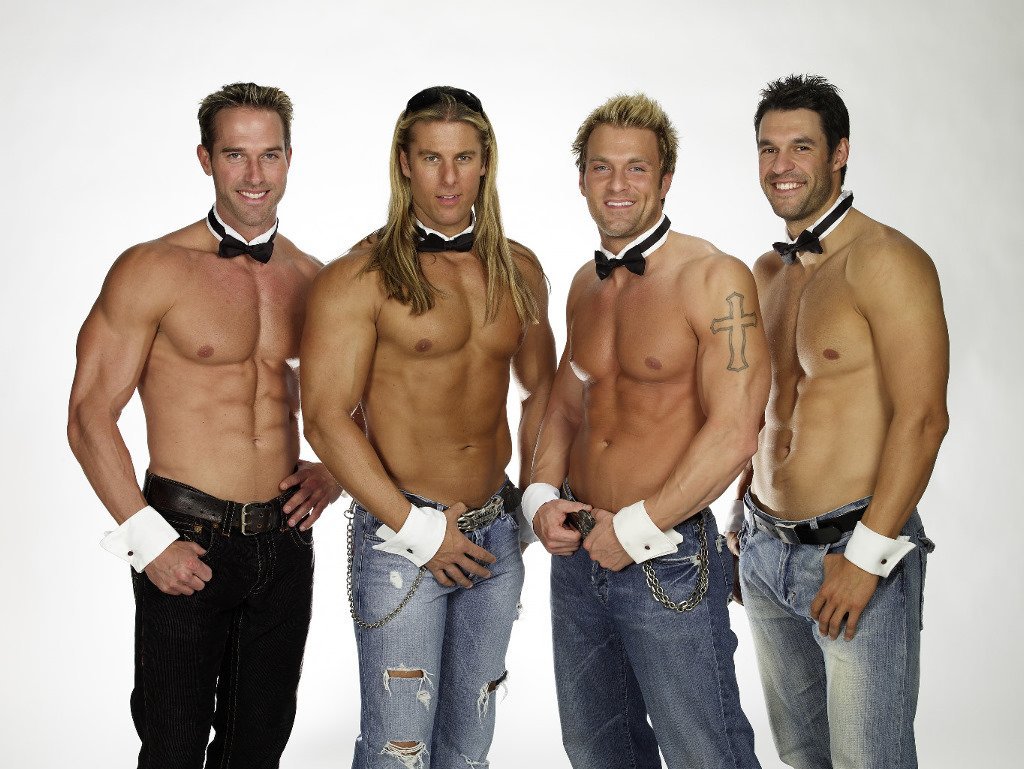
Read This Book!
David Henry Sterry’sMaster of Ceremonies: A True Story of Love, Murder, Roller Skates & Chippedales is written with punch, heart, and so much energy, that there’s a virtual jolt on every page. Sterry tells the story of how, during the 80s, as a green, new-to-NYC actor, he finally found a job– as Master of Ceremonies at Chippendales, of all places, a glamorously sleazy gig which didn’t sour until the brutal murder of his boss. From Brooke Shield’s party to behind-the-scenes glimpses at the “men of Chippendales” and the women who hoot and holler at them, Sterry chronicles a world that is as seedy as it is fascinating. A tough-talking book with a tender heart, Master of Ceremonies is moving, real, and a whole lot of fun.
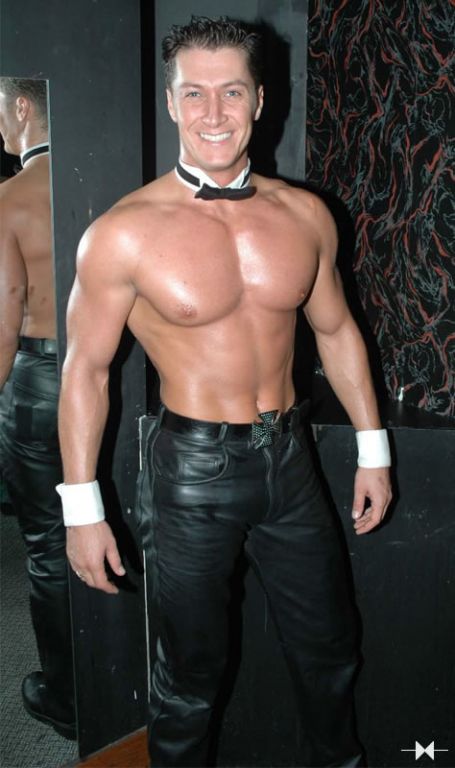
“Master of Ceremonies” is the dizzying, tender, and true story of a fledgling actor whose first break results in a two-year stint as the
emcee at Chippendales, in this work that is resplendent with seedy
glamour, hilarious backstage madness, and unflinching honesty. Sterry
chronicles his adventures as a struggling comic after he is hired as
the host of the popular all-male strip show Chippendales in the early
Eighties. He more than delivers on the promise of his title, and
readers looking for sex, drugs, and New York-style debauchery will
find it in spades. There is a tabloid-level sleaziness inherent in the
material, which Sterry utilizes for maximum entertainment value. He
avoids providing direct sociological commentary on the sexual power
dynamics at play in Chippendales, preferring to let events speak for
themselves. There are two underlying love stories, one between Sterry
and a coworker, and one between Sterry and his craft; both enrich the
narrative with genuine heart. Sterry possesses an engaging writing
style, and fans of his earlier memoir, Chicken: Self-Portrait of a
Young Man for Rent, will not be disappointed. Recommended for large
public library collections and cultural and media studies
collections.-Katherine Litwin, Chicago Library Journal (07/15/2008)
to buy click here
How to get published by the Book Doctors
How to get published by the Book Doctors
How to get published by the Book Doctors.
How to get published, buy the Book Doctors


“Sterry writes with comic brio … [he] honed a vibrant outrageous writing style and turned out this studiously wild souvenir of a checkered past.”
— Janet Maslin, The New York Times
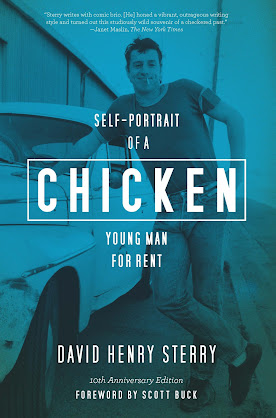
I’m stumped. I really am. I’m speechless. People are so touchy. It’s jealousy. Gotta be. This idea is so huge. It’s just so God damned big. And people seem stunned that I, a Jew came up with it. Please, who else is gonna come up with an idea this brilliant? I ask you. Because this is more than just an idea. This is genius, if I may say so myself, and who’s gonna stop me? I mean, honestly, who among us has not wanted at one time or another to don the power of life and death, slip on the absolute feeling of superiority, and wear the fabulous uniform of a Nazi. Everybody in their dark secret heart wants to be a Nazi. That’s why I came up with NaziLand. To embrace the Nazi within. And the thing that people can’t seem to understand, is that it’s not real. That wouldn’t be the smell of real Jews coming from the ovens. The gold fillings wouldn’t be yanked from real Jews. The sex slaves wouldn’t be real. They’d all be actors. Like at a Renaissance Fayre, or Disneyland. It’s just good clean fun for the whole family. For a nominal fee you get to put on the uniform, the swastica, those big black boots, and strut around like you’re a member of the Master Race. Have someone to blame for all your problems. There’d be the Oven Ride, the Hall of Scientific Experiments, the Blitzkrieg Rollercoaster. I honestly believe if everyone came to NaziLand for a day, it would ease world tension and bring about a lasting peace among all nations. Instead of harboring wicked fantasies of domination and genocide, which let’s face it, all of us do, people could act these feelings out, and through this cathartic release, build a world where love can flourish, and hatred find appropriate release. I’m telling you, this kind of investment comes along once in a lifetime. You’ll kick yourself later if you pass up the opportunity to get in on the ground floor. Sieg Heil, and Mazeltov, baby!

